Streamlining Headquarters Operations Headquarters Functions
Flexible Organization Settings and Permission Management Master Management
Maintenance of necessary masters (store information, organization, permissions) for stores is performed at the headquarters.
This maintenance allows for the registration of store POS information, business hours, business type names, and the setting of the range of stores managed by the manager, as well as who can use which functions.
Additionally, it is possible to create organizational groups separate from the actual organization (such as FC or business type groups) and to set multiple stores as a single store.
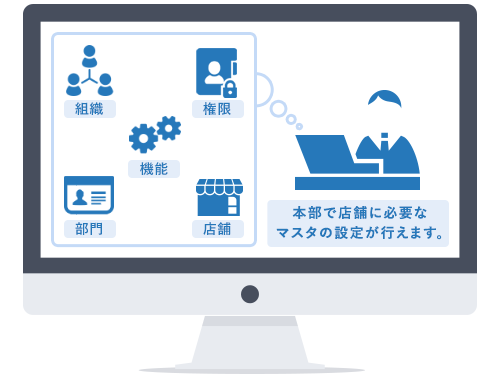
- Organization & Group Settings
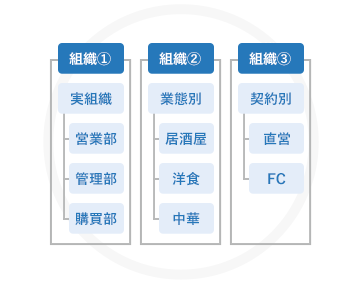
- You can create multiple tree structures such as group settings other than the actual organization.
- Time Punching at Multiple Stores
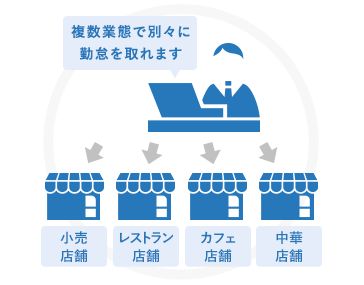
- You can also set up time punching at one terminal by switching between multiple stores.
- Appropriate Permission Settings
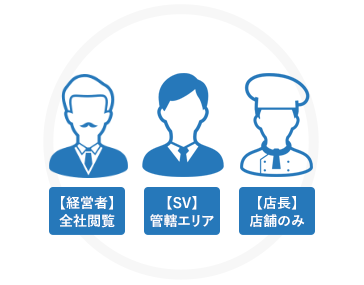
- You can set who can use which functions on a store or individual basis.
Automatically Link with Other Systems Interface
Automatically link data with other systems.
Using the standard data conversion tool, automatic data linking can be achieved with simple settings, regardless of the system on the other side.
Examples of successful links include host computer links, HR system links (salary, paid leave, employees), accounting system links (journal entries, payments), and EDI links (invoicing, orders).
There is also a function for manually linking masters and results, allowing you to freely define linking items in the master settings on the screen.
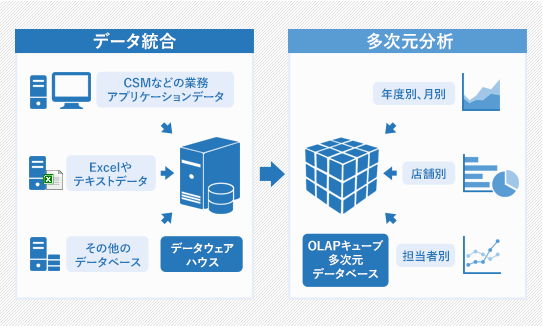
- Various System Links
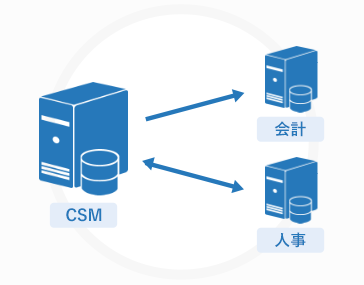
- It has functions to link data with various systems at the headquarters.
- Easy Linking Settings
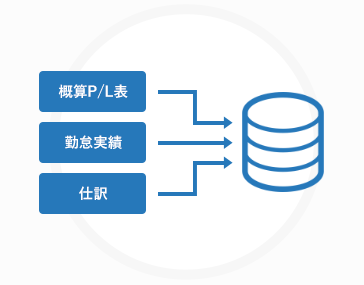
- It is easy to set where to place linking items in the database.
- Output from the Screen
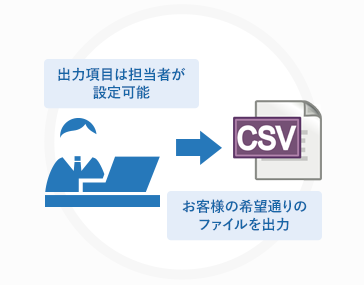
- You can perform bulk output of data. Items can also be freely changed.
Identify Users with Fingerprints, Veins, and Felica Authentication & Log Management
Authentication devices support fingerprint, vein, and Felica authentication.
Authentication can be performed not only for time punching but also when using functions that require permissions, such as manager functions.
All authentication results are recorded in log files, so the authentication rate and correction history of attendance are also retained.
The logs include access logs showing when and who used which functions, authentication logs showing who punched in and when, and the history of who updated the master and when.
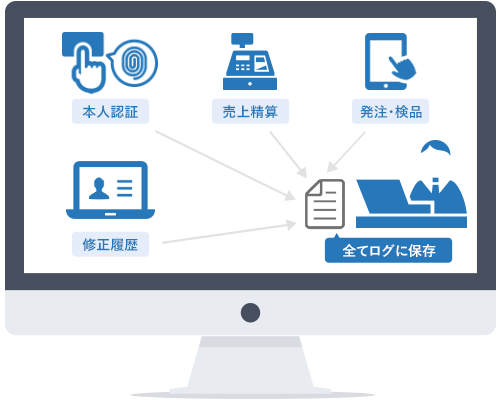
- Access Logs
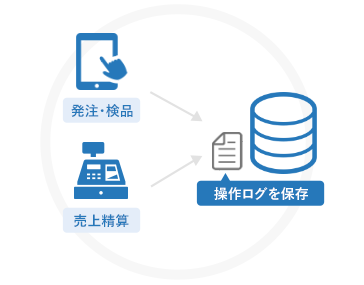
- You can refer to when people at the store and headquarters used the functions.
- Punching Authentication Logs
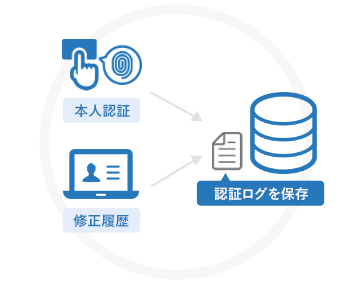
- You can easily see who made corrections and when.
- Bulk Update Logs
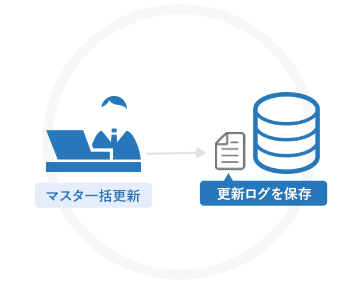
- It records who updated the master, when, and which file was used.






